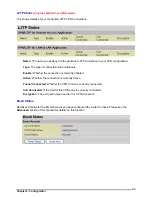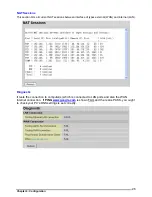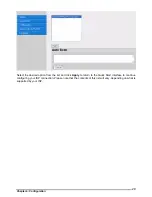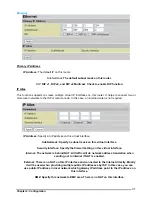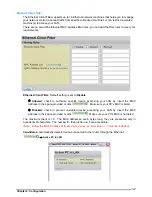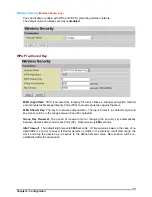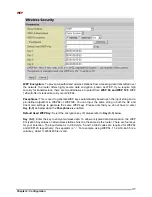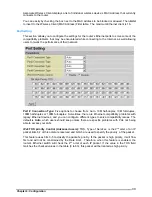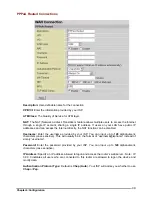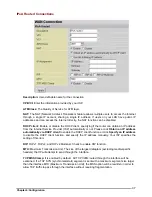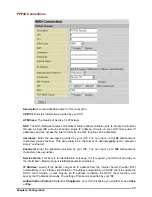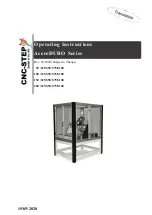
Chapter 4: Configuration
34
Wireless
(Wireless Router only)
Parameters
WLAN Service:
Default setting is set to
Enable
. If you do not have any wireless, both 802.11g
and 802.11b, device in your network, select
Disable.
Mode:
The default setting is
802.11b+g
(Mixed mode). If you do not know or have both 11g and
11b devices in your network, then keep the default in
mixed mode
. From the drop-down manual,
you can select
802.11g
if you have only 11g card. If you have only 11b card, then select
802.11b
.
ESSID:
The ESSID is the unique name of a wireless access point (AP) to be distinguished from
another. For security propose, change the default
wlan-ap
to
a unique ID name to the AP which is
already built-in to the router’s wireless interface. It is case sensitive and must not excess 32
characters. Make sure your wireless clients have exactly the ESSID as the device, in order to get
connected to your network.
(Note:
It is case sensitive and must not excess 32 characters.)
ESSID Broadcast:
It is function in which transmits its ESSID to the air so that when wireless
client searches for a network, router can then be discovered and recognized. Default setting is
Enable.
Disable: I
f you do not want broadcast your ESSID. Any client uses “any” wireless setting
cannot discover the Access Point (AP) of your router.
Enable:
Any client that using the “any” setting can discover the Access Point (AP) in
Regulation Domain:
There are seven Regulation Domains for you to choose from, including
North America (N.America)
,
Europe
,
France
, etc. The Channel ID will be different based on this
setting.
Channel ID:
Select the ID channel that you would like to use.
Connected:
Representing in
true
or
false
. That it is the connection status between the system
and the build-in wireless card.
AP MAC Address:
It is a unique hardware address of the Access Point.
AP Firmware Version:
The Access Point firmware version.





